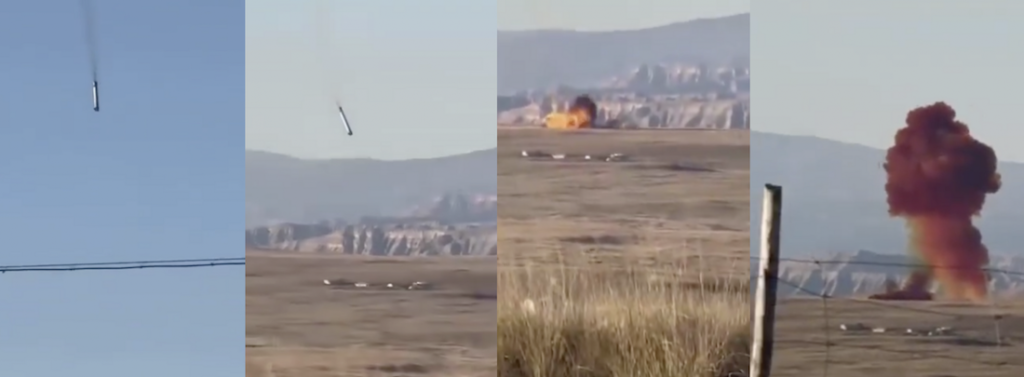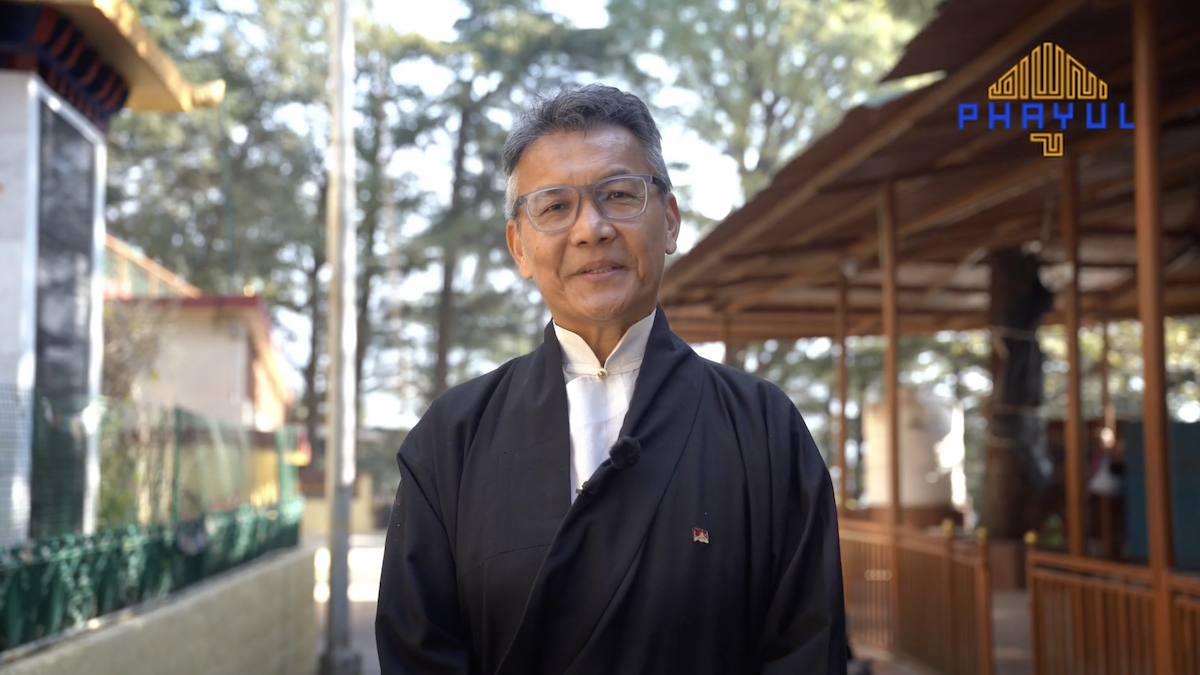By Tsering Dhundup
DHARAMSHALA, Oct. 15: Suspected debris from a Chinese rocket reportedly fell in Mangra County in Amdo, Tibet, on Monday, sparking fire and releasing thick, toxic yellow smoke that alarmed local residents. A Video circulating on social media show the debris crashing onto a grassland and erupting into flames as dense orange fumes spread through the sky.
In the video, Tibetan voices can be heard expressing shock—one saying, “Oh my God, rocket debris is falling,” while another confirms that the debris landed on their land. The footage, filmed from a distance, shows a plume of smoke consistent with chemical propellants used in Chinese rocket launches.
According to China Daily, China launched an experimental satellite, Shiyan-31, aboard a Long March-2D rocket from the Jiuquan Satellite Launch Center in northwestern China at around 6 p.m. Beijing time on October 13. While Chinese officials have not confirmed a link between the Mangra incident and this launch, analysts say the timing and trajectory suggest the debris likely came from the same mission.

State media further reported that the Shiyan-31 satellite was designed to “verify new optical imaging technologies”, marking the 599th flight of the Long March rocket series.
A similar incident occurred last year in Tibet. At the time, CNN spoke with Markus Schiller, a rocket expert and associate senior researcher at the Stockholm International Peace Research Institute, who explained that rockets using nitrogen tetroxide and unsymmetrical dimethylhydrazine (UDMH) as propellants produce orange smoke trails. “This combination is extremely toxic and carcinogenic,” Schiller said. “Every living being that inhales that stuff will have a hard time in the near future.”
China’s practice of allowing rocket stages to fall uncontrolled has drawn international criticism before. In 2022, Al Jazeera reported that debris from a rocket boosting part of China’s new space station into orbit fell into the sea near the Philippines. The China Manned Space Agency later confirmed that the booster had been allowed to fall unguided.
This is not an isolated occurrence of debris failing over Tibetan grasslands. In December 2023, debris from another Long March rocket fell in Drayap County in Kham, Tibet, causing fires and panic among villagers. Despite repeated incidents, Beijing has not implemented safety measures or issued evacuation warnings for Tibetan regions under known rocket drop zones, precautions that are occasionally taken in mainland provinces such as Guangxi or Hunan.
Environmental and human rights organisations have long criticised China’s lack of transparency regarding these rocket debris incidents. Tibet’s high-altitude environment—often called the “Third Pole”—is home to Asia’s major river systems and is ecologically fragile. Experts warn that chemical residues from toxic propellants could contaminate soil and water, threatening both human and animal health across the plateau.










